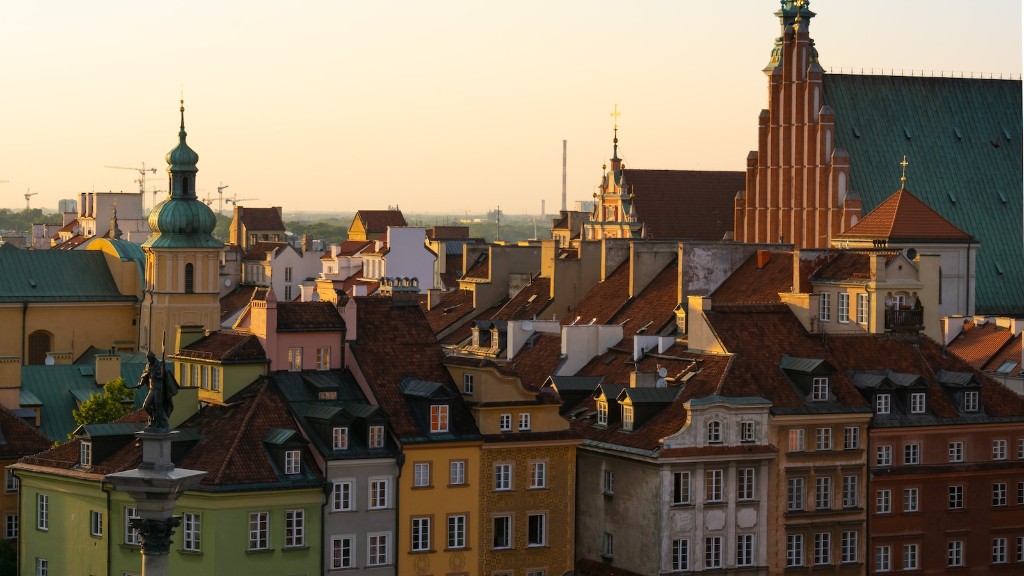Why is Poland So Conservative?
Poland is a central European nation with an area of 312,679 square kilometers and a population of over 37 million people. It is known for its strong historical and cultural identity, and also for being one of the most religiously conservative countries in Europe. So, why is Poland so conservative? This article will explore this question from the perspectives of its history, culture, religious heritage, and current political situation.
History
Poland’s history of conservatism is deeply rooted in the nation’s historical struggles for independence and self-determination. Poland’s overall culture has long been shaped by its past experiences of occupations, partitions, and wars. These struggles have instilled an inherent sense of patriotism and loyalty into the nation, and that sense of patriotism is reflected in its deep-seated conservatism.
Furthermore, many of the countries that were once part of the now-defunct Polish-Lithuanian Commonwealth were deeply religious and conservatively-minded. This religious influence, combined with the country’s historical and cultural identity, has helped to shape the nation’s current conservative attitude.
Culture
Poland’s conservative attitude is also closely linked to its cultural values. The nation’s culture is heavily influenced by its Roman Catholic faith, with the majority of the population practicing Roman Catholicism. This adherence to the Catholic faith has led to the formation of a strong conservative-minded culture, where traditional values and social norms are highly valued.
In addition, the nation’s cultural values are closely linked to its sense of patriotism. The nation has a long-standing history of national pride and loyalty to the nation that has been deeply ingrained in its population. This contributes to Poland’s overall conservative mindset.
Religious Heritage
Poland’s religious heritage also plays a large role in its overall conservatism. For centuries, the Catholic Church has been the primary religious institution in Poland, and it has held a strong influence over the population. This religious influence has helped to shape the nation’s cultural and political values, instilling a sense of patriotism and loyalty to the nation.
In addition, the Catholic Church is highly influential in the nation’s legal and political systems. This influence has helped to foster a deep conservatism in the nation and has helped to shape its religious, cultural, and political outlook in a variety of ways.
Current Political Situation
The current political situation in Poland is a reflection of its strong conservatism. The nation is home to a conservative ruling party, with the Law and Justice Party (PiS) leading a coalition government since 2015. This government has been instrumental in pushing a conservative agenda in the nation, leading to a series of controversial policies in terms of religious, abortion, and LGBTQ rights.
Furthermore, there is a significant conservative movement in the nation, one that is actively working to promote populist policies and reject globalization. This movement, combined with the current political situation, has helped to embed a conservative outlook in the nation.
Media
Poland’s media environment is also highly conservative in nature. The nation’s media outlets have long been dominated by conservative voices. This has had a major impact on the public discourse in the nation, as conservative values are pushed and encouraged in the media. Furthermore, many news outlets are owned by conservative politicians and businessmen, furthering the domination of the conservative narrative.
Additionally, the nation’s public broadcasters are also heavily influenced by the government, with a strong focus on promoting conservative values and limiting access to alternative narratives and viewpoints.
Concluding Thoughts
Overall, Poland’s deep-seated conservatism can be attributed to a variety of factors, including its history, culture, religious heritage, and current political situation. Furthermore, the nation’s media landscape is also highly conservative in nature, helping to further embed the conservative narrative into the nation’s political and social life. Taken together, these factors make for a nation that is not only deeply conservative, but also highly patriotic and loyal to the nation.
Cultural Impact
The strong conservatism of Poland has had an undeniable impact on the nation’s culture, with traditional values and social norms being highly valued. This has caused a shift away from more progressive values and attitudes, with many difficult topics such as homosexuality being largely shunned in the country’s culture. Furthermore, this conservatism has caused some members of Poland’s populace to be reluctant to engage with cultural topics and values that are not supported by the nation’s dominant values.
The nation’s conservatism has also limited access to progressive beliefs and values, with many progressive movements and activists facing resistance and even hostility in some regions. In addition, some of the nation’s conservative views are outdated and have been out of step with many modern trends, such as the growing acceptance of LGBTQ rights. As a result, Poland has maintained a highly conservative environment in many aspects.
Economic Impact
Poland’s conservatism has had an impact on its economic development as well. The nation’s conservative values and policies have hindered the nation’s ability to attract foreign investment and encourage innovation in its economy. Furthermore, the nation’s outdated economic policies have been an obstacle to its economic growth, as they have discouraged foreign investment and businesses from operating in the country.
Additionally, the nation’s restrictive policies on labor have also hindered economic growth and development. Many of the nation’s workers lack the necessary skills and qualifications to work in the modern economy, leading to a lack of skilled labor and higher wages. These policies have been a major impediment to the nation’s economic development.
Social Impact
The nation’s conservatism has had a major impact on its social life. Many of the nation’s conservative values have limited access to progressive values and social norms, leading to a culture that is often too rigid and stagnant. Furthermore, the nation’s restrictive policies on certain social issues have led to a lack of social mobility and hindered the nation’s ability to attract a diverse range of people. This has resulted in a rigid and highly conservative social structure.
In addition, the nation’s conservative values have encouraged a culture of fear, with citizens often too afraid to share their beliefs or engage in controversial topics. This has been a major impediment to the nation’s ability to promote dialogue and debate around important topics, leading to a lack of progress in many areas. Taken together, Poland’s conservatism has had a major impact on its social and cultural life.
Conclusion
In conclusion, Poland is an intensely conservative nation, with its conservative outlook rooted in its history, culture, religious heritage, and current political situation. Its strong adherence to conservative values has had a major impact on the nation’s culture, economy, and social life, limiting access to progressive values and stifling progress in many areas. As Poland continues to develop in the future, it will be interesting to see how its conservative views shape its future.




